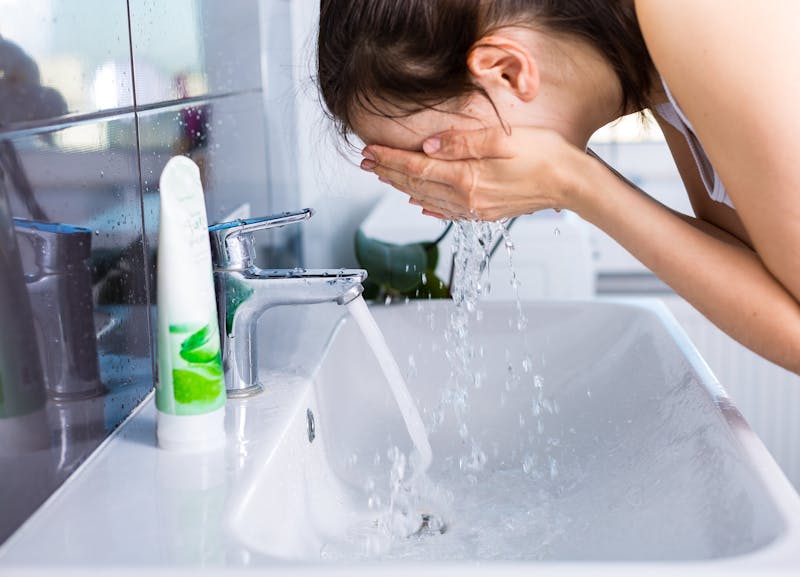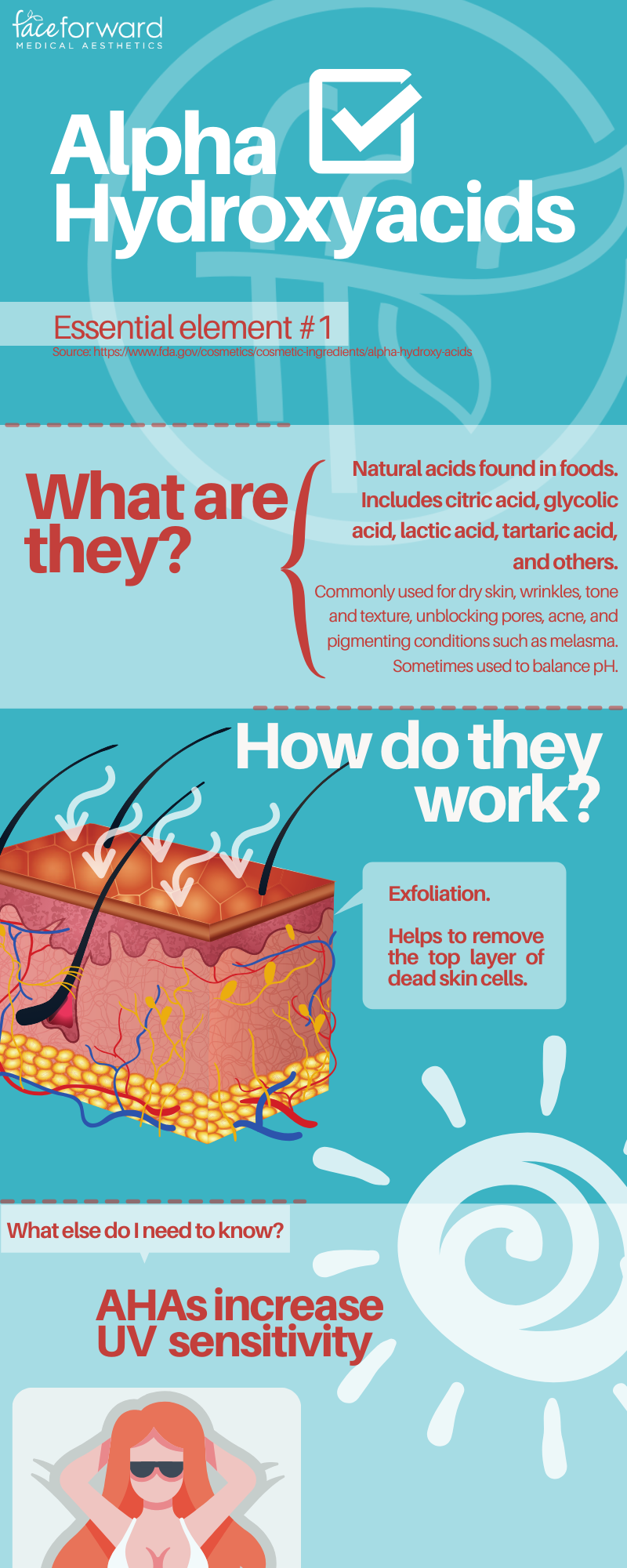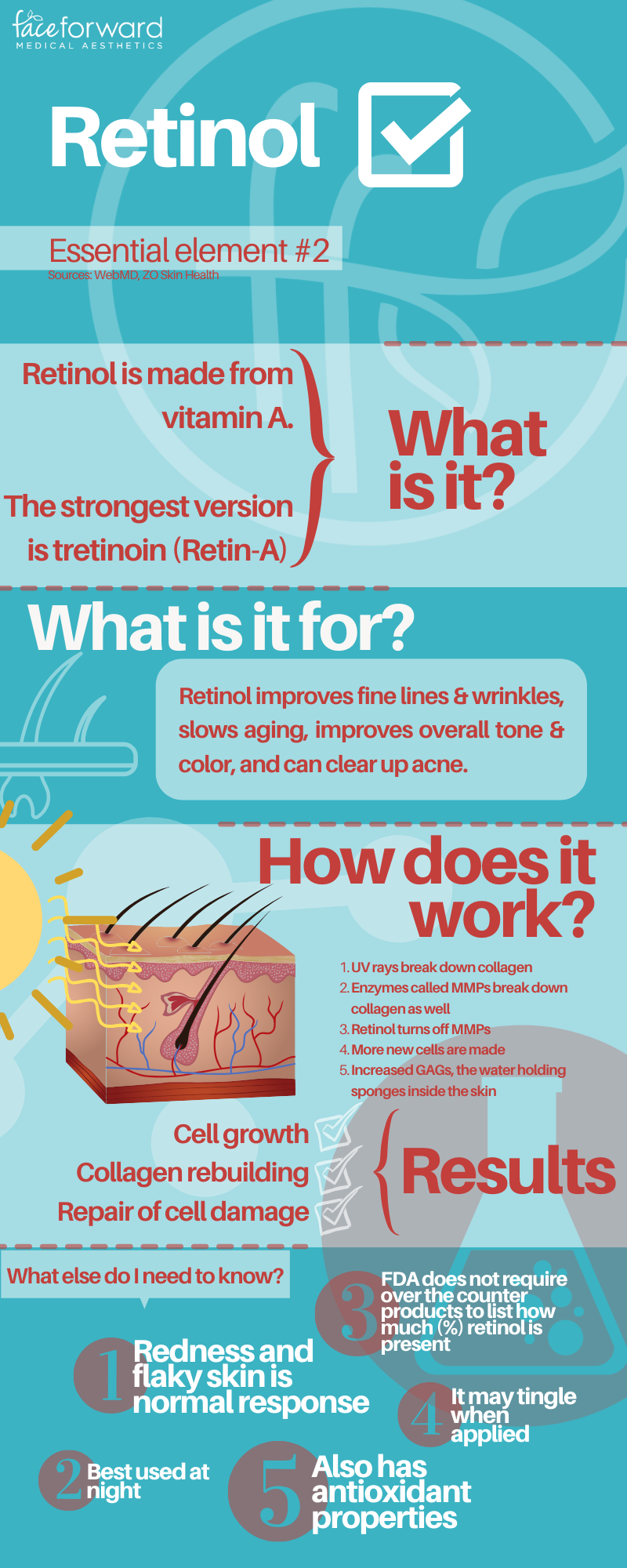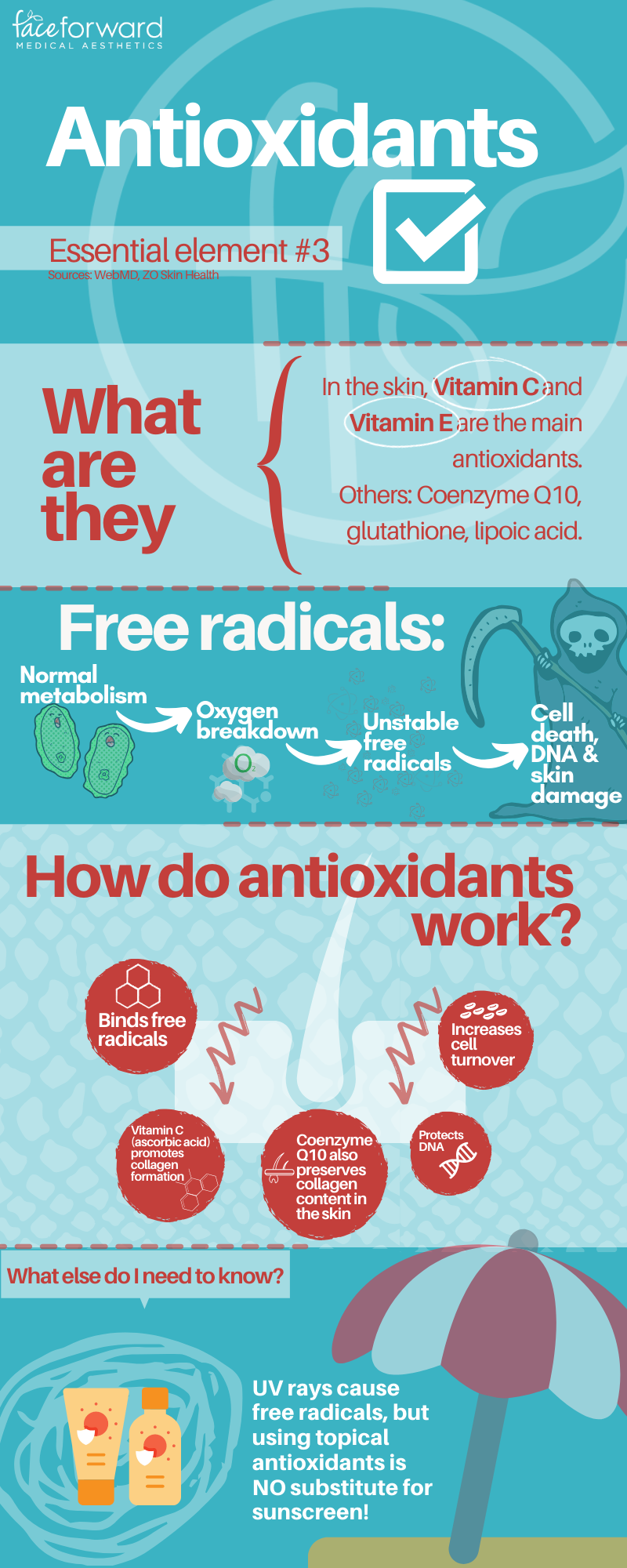
Forget “Skin-Care Steps”;
What You Need Are These Essential Ingredients
Many magazine articles, social media posts, and videos from skin-care experts and beauty influencers these days like to discuss the essential steps your skin-care regime should include.
These range from basic — cleanse, exfoliate, moisturize — to the more extreme, exhausting 10 or more steps (though thankfully, those are starting to fall out of fashion).
I think that's entirely the wrong way to begin planning your daily routine. First, you need to look at your essential skin-care ingredients.
Don't get me wrong, it's a very good idea to clear away dirt and dead skin cells, keep skin hydrated, and protect it with broad-spectrum sunscreen. But the number of steps you take to get there is dependent on which products you're using and how much time you have on your hands.
And rather than looking for products that promise vague goal of "moisturizing" (which is what most people do), you might instead want to be thinking about what you really want your skin to be: healthy, smooth, supple, even-toned, and radiant.
The average moisturizer just hydrates skin cells from the outside, so they stop producing their own moisture, and you become dependent on lotions to avoid dryness.
What the right active ingredients can do is stimulate the cells so that they'll do what they're supposed to — maintain their own hydration and turn over at a healthy rate.
To that end here are the three essential active ingredients to look for in your skin-care products:
1. Alpha-hydroxy acids
Alpha-hydroxy acids (AHAs) are a group of naturally occurring (but often synthetically produced) acids, including glycolic acid, lactic acid, citric acid, malic acid, and tartaric acid. You'll most likely see glycolic or lactic acid in products, because they have the lowest molecular weight, which means your skin can absorb them most easily.
AHA exfoliates the skin, removing dead skin cells that can clog pores and make skin appear dry and dull. This makes way for new skin cells to grow and may even promote collagen production and blood flow to the skin.
The fact that AHA penetrates into the dermis layer of skin also means it can help other active ingredients, such as moisturizers, be more effective.
In over-the-counter lotions and cleansers, you want AHA at a concentration of 10% or less, buffered to a pH of 3.5 or higher. Your aesthetician or doctor will use a higher concentration in a chemical peel in the office, but we don't suggest doing so at home because AHAs can be irritating to the skin and cause sensitivity to light.
When you're using an AHA product for the first time, try alternating days until your skin gets used to it, and stay out of the sun. (And, of course, always use sunscreen and other sun protection.)

2. Retinol
Retinol, a derivative of vitamin A, is that rare active ingredient that has been proven in study after study to improve the look and feel of aging skin — even in users that are more than 80 years old! Like AHAs, retinol is able to penetrate into the dermis, where it promotes cell turnover, stimulates collagen production, prevents collagen from breaking down, and actually makes skin thicker.
All of this diminishes the appearance of fine lines and makes skin smooth and supple. It also helps clear acne because it stops dead skin cells from clogging pores.
A stronger form of retinol, tretinoin (also known by the brand name Retin-A) is available only by prescription. But if you're looking for over-the-counter products, you can find retinol in creams and serums.
This ingredient has been shown to increase sun sensitivity, so you may choose to use it only at night, or under sunscreen during the day.

3. Antioxidants
As much as you've heard the word antioxidants thrown around when referring to healthy foods and skin-care, you may not really know what it is they do. It boils down to the biology and chemistry some of us slept through in high school, so here's a little review: To create energy via aerobic metabolism, cells use oxygen, carbohydrates, fats, and proteins.
A byproduct of that process is unstable oxygen atoms called “reactive oxygen species” or “free radicals.” What makes them unstable/reactive/radical is that they only have one electron, and electrons prefer to be in pairs, so the atoms seek out electrons from other atoms.
While trying to scavenge electrons to pair with, these atoms damage cells and DNA. That damage, called oxidative stress, can have dire consequences, such as cancer and heart disease, as well as merely unpleasant effects, like loss of collagen and discoloration of skin.
While aerobic metabolism is a natural process of the body, exposure to sun and pollution increases oxidation, causing more damage.
That's where antioxidants like vitamins C and E, coenzyme Q10, glutathione, and lipoic acid, come in. The molecules of these ingredients are like tiny peacemakers stepping in to protect your cells. They have electrons that bind to those rogue oxygen atoms, stabilizing them and preventing them from wreaking havoc.
Your body creates some antioxidants, and you get much of it from food, but studies have shown that some topical forms are also effective, in the form of serums, creams, and lotions. (BTW, these antioxidants protect the cells, but they are not a great substitute for sunscreen!)

I hope this little primer has empowered you to walk down the skin-care aisle with confidence. I also highly recommend ZO Skin Health and SkinBetter Science, which we sell at Face Forward Medical Aesthetics.
I can attest to the fact that these products contain effective concentrations of those essential ingredients, so you'll know you're getting the real deal.
If you have any questions about which ingredients or products would benefit your skin the most, don't hesitate to stop by and ask us!

